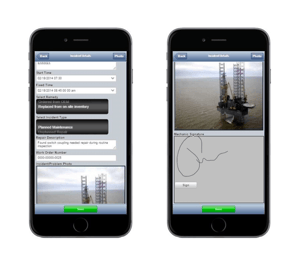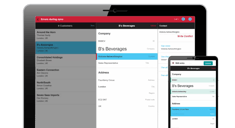
In many ways, data is the lifeblood of corporations, governments, educational, and other nonprofit organizations.
A key aspect of how this data is "born" and gets used has been and will continue to be paper forms. They remain the quintessential method of capturing critical data to feed into back-end systems of record/databases, and are filled in millions of times globally each day.
With the majority of people on the planet now having a computing device on hand at all times (i.e. smartphones,) businesses, governments, and non-profit agencies are now looking to upgrade their paper forms to more valuable mobile forms which allows the inclusion of new kinds of data such as images, video, sound, GPS location/time stamps, etc. that can be accessed from smartphones.
However, it is important to take note of the fact that there is an enormous difference between regular mobile forms apps and those that are enterprise-grade. A simple mobile forms app can be useful when organizations are capturing simple data and sophistication is low, integration with corporate databases and system of records isn't required, and security and authentication is not a pressing concern. Once you go beyond that, "enterprise-grade" becomes a critical descriptor to understand.
Based on our work with major enterprises and organizations, we've assembled a checklist of enterprise-grade requirements for mobile forms software.
Enterprise-Grade mobile forms builders:
- Need to operate offline, when there is no signal. (there are many situations where there is no signal, the signal is weak/intermittent or it is not usable/slow because too many people are logging in - at conferences, on trains, etc.)
- Need flexible deployment - on a cloud outside a firewall, in-house inside a firewall or on a private cloud
- Need complex multi-table relational data structures that reflect real-world data requirements (inspection reports, health records, maintenance histories, etc.)
- Need to operate smoothly and easily under technically challenging use cases like small mobile device with limited screen real-estate - such as smartphones. It is important to emphasize that making digital forms run well on phones is critical because they are 1oX more prevalent than tablets
- Need to seamlessly integrate and inter-operate with any back-end enterprise system (SAP, Oracle, SalesForce, IBM, etc.) and SQL and non SQL databases
- Need enterprise-grade security and authentication
- Need to be easily extensible into a general-purpose low code system so that there are no limits to how the data is used and processed
Additionally, line of business professionals should be able to build enterprise-grade mobile forms apps themselves when they need them because they have the domain knowledge, know exactly what they need in terms of the app's functionality, and need the ability to make changes quickly
(Note - the data collected in the forms needs to be integrated into back-end systems by IT/developers because they manage the data and need control over info that gets written and extracted from corporate databases and systems of record)
Quickly entering and accessing accurate corporate data via smartphones from core systems of record is so fundamental to modern business, that it is worth taking the time to consider whether "enterprise-grade" forms are what you need.







Comment